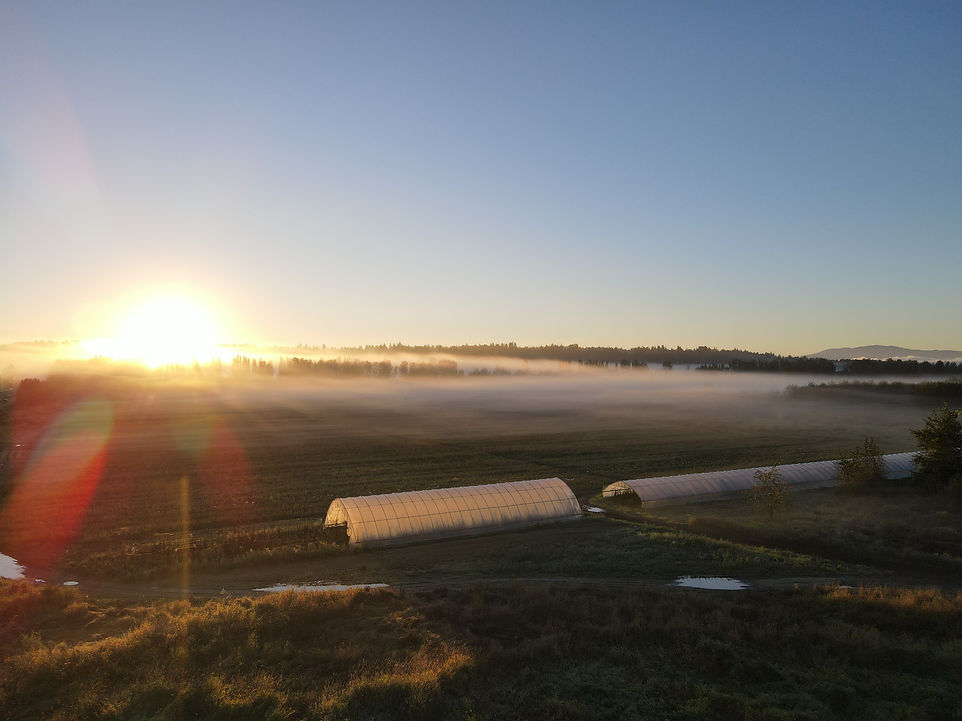

Our Story
Although Sound Sustainable Farms put down roots in the Redmond community early in 2017, the story dates back much further to 1938, when a local family started a small garbage company in the City of Seattle. Fast forward to the late 80's, the City of Seattle realized that organic materials like yard and food waste were unnecessarily, and much to the detriment of the region, filling the local landfill, thus shortening its lifespan. One answer to this was to divert organic materials from the waste stream, and put it to its highest and best use by composting it. The recycling industry was in its infancy, but the Pacific Northwest was at the forefront of these efforts, and Cedar Grove Composting was born.
For decades, high-quality compost has been produced locally and used in home gardens, landscapes, construction sites, and farms, to add nutrients and rebuild depleted soils. In agriculture, this activity dates back thousands of years, and prior to mass-produced synthetic fertilizers, was the primary way of ensuring crops had the nutrients needed to ensure quality yields and fend off many diseases.
But there is more to the story...
Since 2005, Cedar Grove Composting has worked with hundreds of restaurants throughout the region to haul and compost their food waste as part of their ongoing regional diversion programs. This gave us the unique opportunity to not only responsibly handle this food waste, but once composted, reuse it as the primary nutrient input in the fields. This would allow us to grow the highest quality organic produce, and supply it back to the same restaurants who responsibly manage their food waste by turning it into compost.
Full circle recycling, right here in our region!
In 2017, we had the opportunity to acquire 60 acres in Redmond that had been fallow for many years due to over-farming. We jumped at the chance to restore this land to its historically and productive agricultural state, and Sound Sustainable Farms was born.
“This idea is simple, but so powerful: close the loop on sustainability by growing produce and planning menus based on seasonal produce grown from our own compost. We quickly understood and signed up to partner with Sound Sustainable Farms to bring delicious, sustainable produce to each plate served to our guests at Cactus.”
— Marc Chatalas, co-owner, Cactus Restaurants and Tavern Hall
The first, and most important step in our process, was to prep the land and add compost to the entire field. It's well documented that compost provides benefits to agricultural land by:
-
Providing both quick and slow-release nutrients
-
Improving soil structure for better root growth and reduced erosion
-
Increasing water retention which reduces irrigation needs
-
Supplying and supporting beneficial microorganisms in the soil
-
Improving nutrient retention while helping plants effectively utilize these nutrients
-
Buffering the soil pH




In addition to Sound Sustainable Farms building a strong community resource, we wanted to provide a venue for this region to see firsthand how the valuable resources we recycle every day can be used to grow healthy food for the community we live in.
Sound Sustainable Farms is committed to:
-
Farming organically.
-
Enhancing the land we farm, by adding compost and nutrients, and leaving it better than we found it.
-
Supplying restaurants, local residents, and food banks with fresh, locally grown, organic produce.
-
Providing an educational venue and opportunities for the community we serve to learn more about using compost in agriculture, growing produce west of the mountains, organic farming practices and standards, and more.
-
Best practices in food safety.
-
Providing local jobs for farmers.
Sound Sustainable Farms is devoted to building and maintaining healthy soils by using compost, cover crops, and rotating crops. We reject the use of synthetic insecticides, herbicides, fungicides and fertilizers.
Additionally, we sell our products locally to limit the environmental footprint of transportation,
and we are committed to working collaboratively with the local farm community to support agriculture markets and infrastructure, so that small farms thrive.
 |  |  |  |  |  |
|---|---|---|---|---|---|
 |  |  |  |

